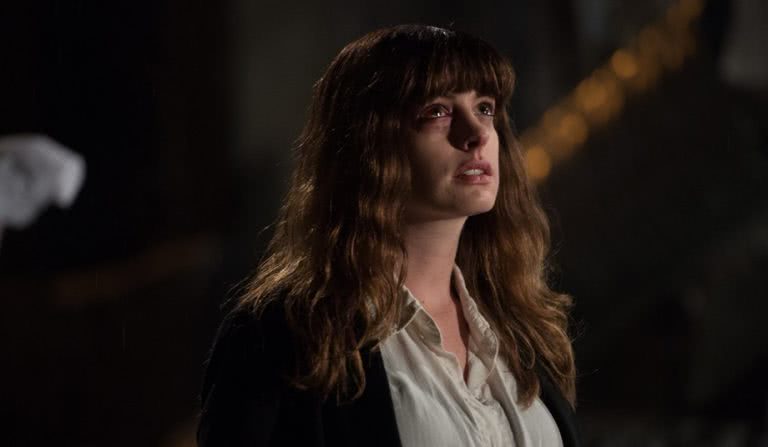★★★★☆
Imbuing monster movies with heart is a problem filmmakers have faced for decades – surprisingly, really, given that the genre’s roots are in hurt.
After all, the towering achievement of creature feature cinema, Godzilla, was directly born out of tragedy, conceived as a way for audiences to come to terms with the twin atrocities of Hiroshima and Nagasaki.
Yet despite that history, recent attempts to humanise the crashing, tower-block-bashing spectacle central to monster movies have largely fallen flat, give or take outliers like Big Man Japan and The Host. Directors frequently make the mistake of prioritising big-budget special effects work over their stories, finding themselves too busy training their cameras on their CGI beasties to properly peer into the lives of their human characters.
Enter Nacho Vigalondo, the man behind the excellent Time Crimes, and a filmmaker who has found an ingenious way around such a conundrum. In Colossal, his subversive dismantling of everything from Hollywood blockbusters to the conventions of romcoms, human characters and monsters are one and the same, and the film expertly intertwines the mythic with the startlingly mundane.
The set-up is thus: perennial fuck-up Gloria (played by Anne Hathaway, clearly having a lot of fun) can’t stay sober, keep down a job, or even hold the respect of her hard-to-like boyfriend Tim (Dan Stevens in full English prig mode). In order to get her life back on track, she heads back to her hometown, only to discover – via an expertly handled splash of magical realism – that she can control a monster decimating South Korea.
And… that’s about all one should know heading in. It’s best to approach Colossal largely ignorant of its twist and turns – particularly because, for once, the film’s promotional material doesn’t give away a pretty major tonal shift in the film’s second half. But suffice to say, Vigalondo has a few tricks up his sleeve, and though Colossal pays obvious homage to the Godzilla series (and particularly 1964’s underrated Ghidorah, The Three-Headed Monster) it’s equal parts Barfly, eventually becoming a powerful examination of addiction and abuse.
Indeed, by the film’s genuinely affecting conclusion, Vigalondo has revealed his true modus operandi, almost entirely swapping out full-scale destruction with pains and obliterations of a more personal, emotional nature.
To that end, Colossal holds the historic distinction of being perhaps the first monster movie with the power to make you cry. And on that level, as on so many others, it is an extraordinary success.
Colossalopens in cinemas Thursday April 13.


































